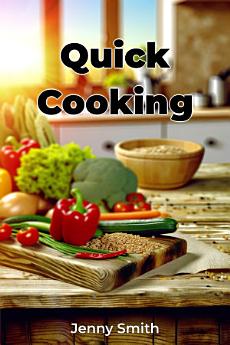Quick Cooking
About this ebook
The book stands out through concepts like “flavor scaffolding,” which teaches readers to build diverse dishes from a few core ingredients (think roasted veggies transforming into grain bowls or soups). It blends behavioral psychology—like the “two-minute rule” to combat procrastination—with practical tools such as the “10-minute prep principle” for chopping and batch-cooking staples ahead of time. Unlike cookbooks focused on complex recipes, this guide prioritizes “minimum viable cooking” with five-ingredient meals adaptable to dietary needs. Chapters progress from debunking cooking myths to habit-building strategies, supported by global culinary traditions and environmental insights on reducing food waste.
Written in an encouraging tone, Quick Cooking balances step-by-step recipes with wellness tips, avoiding diet dogma while emphasizing consistency over perfection. Its four-week meal plans and store-optimized grocery lists make healthy eating achievable for professionals, parents, or students. By framing cooking as sustainable self-care rather than a chore, the book empowers readers to transform mealtime stress into moments of nourishment—proving that even the busiest lives can savor the benefits of home-cooked meals.








